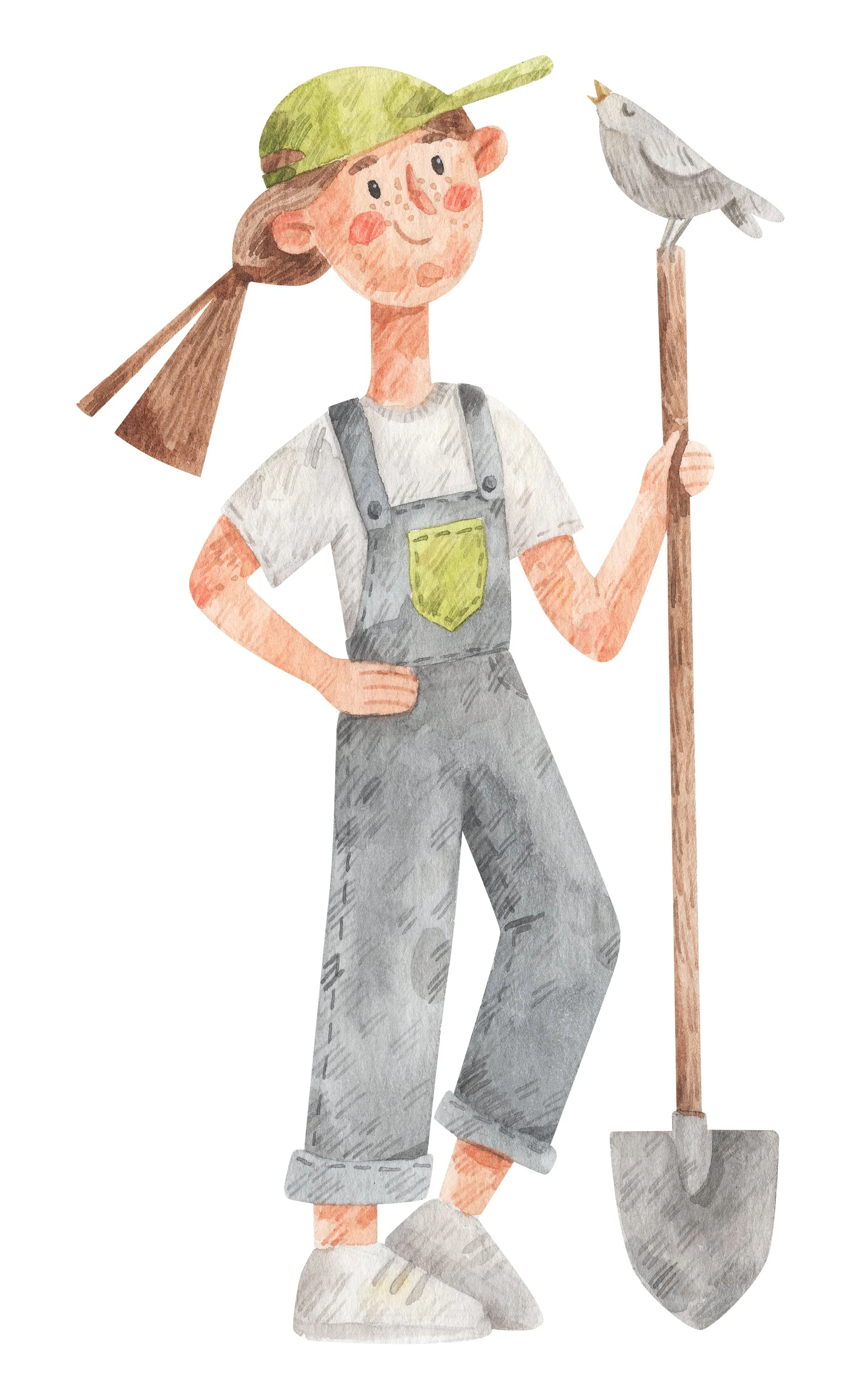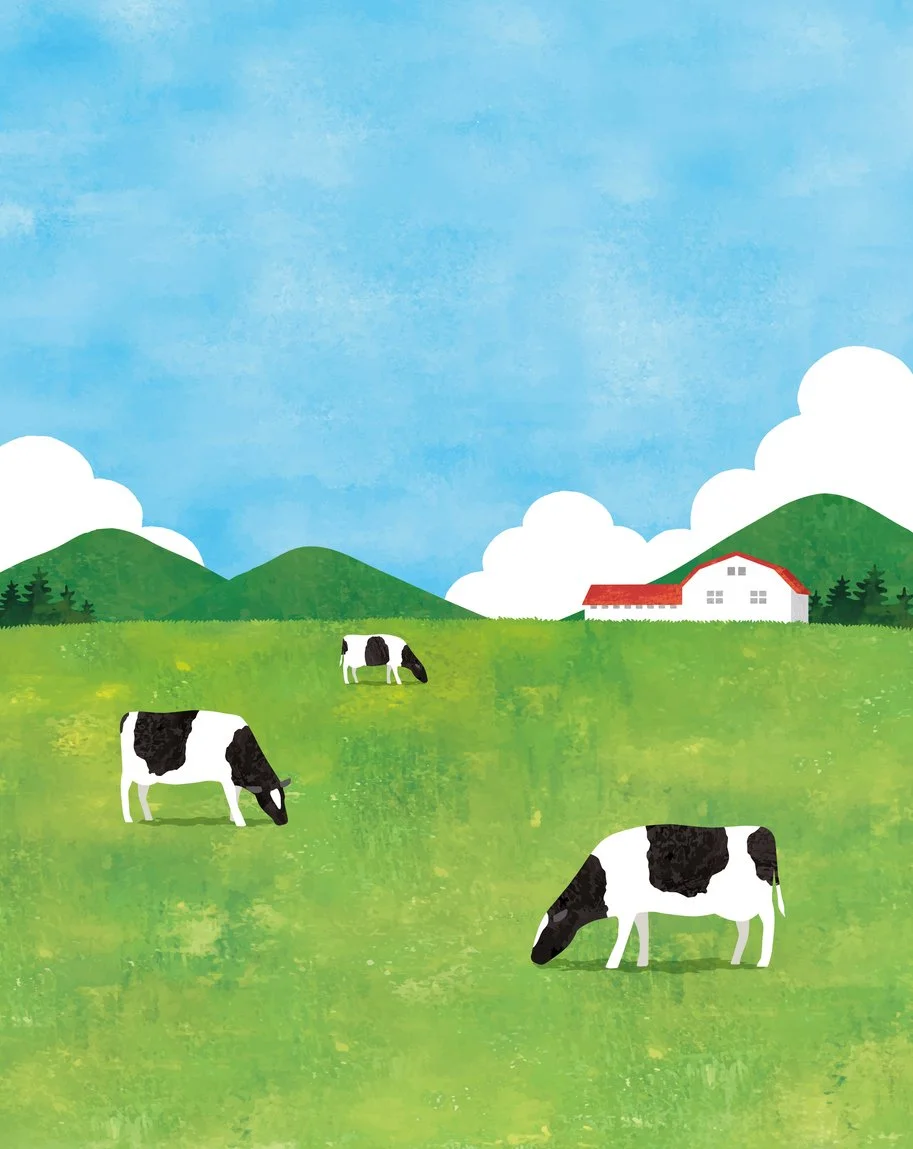
How to Start a Small Farm in Texas
Farming in Texas can be tough work, but it's a promising business venture if you make a smart plan, understand the costs, and know the basics. Our guide covers both expected and unexpected expenses, including machinery, property, marketing, and location, to help you launch your very own farm.
Welcome to our comprehensive section on starting your own farm! Whether you're a seasoned gardener looking to scale up, or a complete novice with dreams of a self-sustaining homestead, this page has everything you need to get started. We cover everything from choosing the right land and equipment, to selecting the best crops and livestock for your region, to navigating the business and legal aspects of farming. With our step-by-step instructions and expert advice, you'll be well on your way to a successful and sustainable farming operation in no time. Let's dig in!
Are you looking to get your hands dirty and make a living off the land? Farming can be an incredibly rewarding profession that allows you to enjoy the outdoors and work with nature. It requires hard work, but with the right knowledge, it’s possible for anyone to become a successful farmer. On this page, we’ll discuss some of the tips and tricks that will help you start your own farm or jumpstart an existing one. We’ll also look at what it takes to succeed as a modern-day farmer and how technology is helping farmers stay competitive in today’s market. So if you’re ready to take on the challenge of farming, let’s get started!
Research the type of farming you want to pursue
Farming is a diverse discipline, with many different types of farming to choose from. Each type of farming offers its own unique challenges and rewards, but all require hard work and dedication to be successful.
Organic farming is a type of agriculture that focuses on sustainability and the use of natural practices to cultivate crops and raise animals. It is often considered one of the most sustainable forms of farming and can be a great option for those looking to start their own farm and beginning farmers due to the uncomplicated nature of not dealing with GMOs and pesticides.
Animal husbandry is another type of farming that involves caring for livestock, such as cows, pigs, chickens, and other animals. This type of farming will require specialized knowledge about animal care and nutrition in order to be successful. Although formal education is recommended for farming and raising livestock, a lot of farms skip that and just go directly with internship opportunities to learn the basics and get some real-life farming experience.
Obtain the necessary education and training
Starting a farm is one of the most important decisions you can make in your life, and it needs to be taken seriously. Farming is no joke and it can be a daunting task for the beginning farmer. The Farming industry is also one of the hardest industries to get into. Farming as a business is hard, but with the right education, it can be one of the most fulfilling decisions you can make in terms of the right career path.
How to Become a Farmer in Texas
Are you a Texan with a dream of becoming a farmer? You're in luck! Texas has a rich tradition of agriculture, with $20.2 billion in cash receipts coming from agricultural commodities in 2020 alone. And now, more than ever, young farmers are taking up the mantle of this proud industry, learning from experienced farm managers and working hard to cultivate the land. But make no mistake, becoming a farmer in Texas is no easy feat. It takes preparation, dedication, and a willingness to learn. Luckily, our guide has everything you need to know to get started on your journey towards becoming a successful farmer in the Lone Star State.
Be familiar with the different certifications and farming methods
Starting a farm is just the first step. Getting certifications is a good way to actually show and prove that you’re practicing what you’re preaching. With different certifying organizations and different types of certifications, getting the right one can boost your farm’s income and add value to your products.
Getting an Organic Farming Certification
Are you a producer looking to provide high-quality, all-natural food products to consumers? Then acquiring an organic farming certification is a major milestone for you! Not only will it give you wider access to the market, but it also shows your dedication to producing healthy and sustainable food.
But we know that the process of getting certified can seem overwhelming. That's why we've created a step-by-step guide to help you navigate the USDA and Texas Organic Farming Certification process with ease. With our expert guidance, you'll be well on your way to producing top-notch certified organic products that your community and beyond will love.
So don't wait any longer to achieve this sought-after certification! Follow our guide and start providing your customers with the best, all-natural products possible.
Growing the right crops
Choosing the right crops for your region and soil type can make all the difference in your success. Not only will the right plants thrive and produce a bountiful harvest, but they'll also require less maintenance and resources than plants that aren't suited to your area. And when it comes to planting, proper techniques can help ensure healthy growth and maximize yields. So don't leave your harvest up to chance!
Most Profitable Crops in Texas and Beyond
Have you ever found yourself curious about the world of farming and agriculture? As Texans, we're lucky to be surrounded by food producers and to have a deep appreciation for the value of turning nature's bounties into profitable crops. But with so many crops to choose from, it can be overwhelming to know where to start.
That's where we come in! In this guide, we'll walk you through everything you need to know to become a successful farmer. We'll start by exploring the most profitable crops to grow in Texas, from large-scale industrial crops to specialty all-natural organic crops grown by small-scale growers. With our expert insights, you'll be well on your way to choosing the right crops for your farm and maximizing your profits.
So if you're ready to turn your passion for farming into a profitable venture, let's get started!
Farming and Ranching go hand-in-hand
Farming and ranching are like two peas in a pod. Even though farming is all about growing crops and ranching is focused on raising livestock, these two practices actually go hand in hand. Many farmers also have animals on their land, and ranchers often grow crops to feed their herds. It's a symbiotic relationship that benefits both the land and the people who work it. Don’t feel like you have to choose between one or the other. By combining the best of both worlds, you can create a thriving and sustainable operation that supports your livelihood and your love of the land.
How to Become a Rancher
Are you considering a career as a rancher? It's a big decision, but one that can bring a lifetime of satisfaction as you tend to the land and care for your animals. As a rancher, you'll need to be well-versed in animal health management, farming equipment operation, breeding techniques, and a whole host of other skills that are specific to your area of expertise.
But before you dive in, it's important to figure out what type of ranch you want to operate. Do you want to focus on producing AGA-certified beef, or perhaps educating others about the joys of homesteading? There are so many possibilities out there! In the United States, there are primarily three types of ranches to choose from. By getting familiar with each type and honing in on your goals, you can set yourself up for success as a rancher. So let's take a closer look!
How to Start a Ranch in Texas
Have you ever dreamed of owning your own Texas cattle ranch, with acres of green pastures as far as the eye can see and healthy cattle grazing as nature intended? If so, you're not alone! Texas is the perfect place to make that dream a reality, with plenty of land available for food and textile production. And the good news is, setting up your own ranch here comes with some great tax benefits from both state and federal governments. So if you're ready to start living the Texan dream, keep reading to learn more about how to make it happen!
How to Start a Cattle Farm
Are you considering starting a cattle farm? It’s an exciting and rewarding endeavor, but it’s not without its challenges. Before diving in, it’s crucial to do your research and proper planning to set yourself up for success. Did you know that the cattle industry brought in a whopping $72.9 billion in cash receipts in 2021 alone?
With numbers like these, it’s no surprise that many are turning to cattle farming. However, it’s important to have a realistic understanding of what it takes to become a successful cattle farmer. Let us help guide you through the process and provide you with the information you need to make an informed decision about whether cattle farming is right for you.
The 5 Most Popular Cattle Breeds in Texas
Texas and cattle-raising have a long-standing relationship that dates back to history. With ample space for pasturing and a sunny climate, it's no wonder why Texas is the perfect place for raising young cows. From large commercial meat factories to sustainable ranches that focus on regenerative agriculture, cattle farming is a booming industry in Texas. As a self-proclaimed foodie with a love for meat, I'm always interested in the type, quality, and taste of the meat I eat. That's why I started geeking out on cattle breeds and their meat-based characteristics, and even spoke to a local beef producer to perfect my Filipino dish, beef caldereta. After some research, I found the most popular cattle breeds in the Lone Star State, and I'm excited to share them with you.

Texas & Beyond: Pasture Grasses
We all know how challenging it can be to find the right combination of species and varieties that are best suited for your specific needs. But don't worry, we're here to help. Whether you're looking to rehabilitate land, produce amazing pasture grass for selling, or just want your lawn to be the envy of the neighborhood, we've got you covered.
Pasture grass is like the lifeblood that keeps livestock farms in Texas and beyond going strong by providing natural feed for the animals. In this article, we'll take a closer look at some of the best pasture grass for Texas and explore why these particular types are ideal for your livestock. So let's dive in!
TexasRealFood is here to help start your own farm
TexasRealFood has a business resource hub provides support for all in the local food community. We know how hard it can be to start a business and find the right resources in times of need. Our Business Community Resource Hub is designed to help you find information, services, and advice quickly and easily. As we always say, the best food community is one we build together.
Keep your business moving forward with guides on how to start a business, getting emergency relief, find financing options, tools and suppliers, services, educational resources on how to start your own farm, and more!
We also have educational guides with business ideas and other resources to get you started on the right track.









